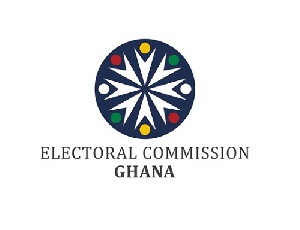The idea to enlarge the columns on the ballot paper by the Electoral Commission (EC) to reduce the number of spoilt ballot papers during elections has received a strong opposition by a researcher and concerned citizen.
According to John Amoah, a researcher and a social commentator, the EC will continue to record high number of spoilt ballots if the Commission continues to use ink for thumb printing on the ballot paper.
Speaking to the DAILY HERITAGE last Monday, Mr. Amoah expressed his worry about the number of ballots rejected during general elections, arguing that, the EC’s suggestion “is out of track.”
He indicated that “we cannot organise an election when over a quarter of the voters are disenfranchised. We should find a way to end this problem.”
On how to address rejected ballots, Mr. Amoah suggested that, “the use of the ‘tear-off’ is the best solution to end this problem,”
The tear-off, which he designed out of his research, is “a designed ballot paper where the EC will perforate where we are supposed to thumb print so that we just pull that side out to indicate who we have voted for.
“Some voters accidentally spoil their ballots. In fact, while folding their ballot papers, they can soil it with the ink that was left on their hands after casting their votes.
“With the introduction of the tear-off, we can address this issue because there won’t be any ink to soil the paper,” he told the paper.
He stressed on the need for the EC to take the organisation of general elections seriously, hence, the need to reduce rejected ballots.
According to him, the current system is weak and very expensive, arguing that, the tear-off system is the best alternative to the current system.
“In this system we will not be buying any ink or duster to wipe our hands after voting. We can save a lot of money with this idea,” he said.
Though he admitted that the idea cannot solve the problem of rejected ballots entirely, Mr. Amoah stated that, “the system will improve the election processes.”
“Even political party officials cannot vote the proper way during their party elections, then how much more the general public. We should be innovative and this is an innovative way to solve it,” he mentioned.
He further indicated that he has contacted all the key players in the electoral process, but is yet to see any advancement.
Expert’s opinion
Managing Editor of the DAILY DISPATCH newspaper and a pollster, Mr. Ben Ephson, also expressed his worry about the number of rejected ballots recorded after elections.
He told the DAILY HERITAGE that political parties should come up with innovative ideas to help curb the canker.
“Political parties, especially, the Members of Parliament, should draw a strategy to solve rejected ballots after elections because they are much closer to the people,” he said.
When asked about the tear-off idea, Mr. Ephson said “with the time left I don’t think they can deploy that idea this year. They first have to try and see how it will fare.”
EC’s response
Deputy Communications Executive, Yusif Ayuba, indicated that he had no knowledge about Mr. Amoah’s claim about contacting the commission on the issue.
He further told the paper that, his outfit is committed to ensuring free, fair and credible elections.
Background
The DAILY HERITAGE, in its Monday, October 24, edition, reported that the EC will produce redesigned ballot papers with large columns to provide enough space for thumb printing to reduce the high number of rejected ballots.
The EC will again boldly deepen horizontal lines separating candidates on the ballot papers to provide clear distinction among the candidates.
Statistics from the EC indicate that a total of 251, 720 ballots cast were rejected outright, out of 11, 246, 982 valid votes cast in the presidential elections of 2012, representing 3.6%.
General News of Wednesday, 26 October 2016
Source: Daily Heritage

















